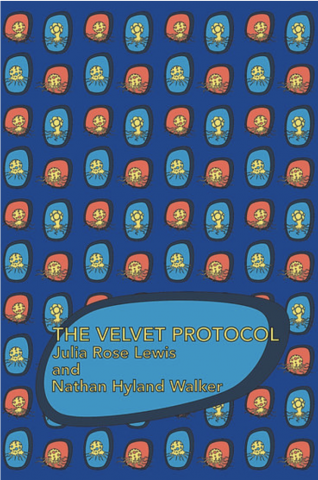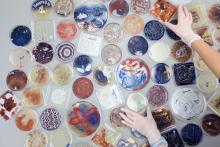Velvet, Cancer, Beans Oh My!

Serendip is an independent site partnering with faculty at multiple colleges and universities around the world. Happy exploring!

Here are a few pages from "The Gene: An Intimate History" by Siddhartha Mukherjee that I found relevant after today's discussion.
If this sample isn't too technical for you, this is a great book that both goes into the details of how genetics works and does an excellent job of covering the eugenics movement in America (and elsewhere, but primarily America). The author himself had several schizophrenic relatives, who he talks about a bit in the book.

Hi, everyone! I came across a podcast from Short Wave discussing inaccessibility in the lab and other spaces in STEM fields. Krystal Vasquez, a disabled scientist, speaks about how her relationship with science changed when she became disabled and how we can make science more accessible to everyone. I especially recommend this listen to fellow STEM students! Vasquez talks about we can use universal design in the lab, which I think would be very valuable to both disabled and non-disabled folks conducting research. Throughout this past semester, I noticed that I always felt really tired and somewhat achy after my chemistry lab. We often had to stand for hours at a time by the fume hood.

Some of my thoughts over the course of the semester have led me to discover the right-to-repair movement. Organized from mostly farmers who could not repair their equipment without paying companies like John Deere to repair it for them, putting them in an unfair power dynamic with a machine that is necessary to their liveliehood and that they own. Recent platforming of the issue has allowed for a multiplicity of right-to-repair coalitions in support of the rights to repair medical equipment, electronics, industrial equipment, and manufacturing apparatuses, inducing an impetus for the intersection of disability advocacy into the movement.

I went from having almost no knowledge of disability studies before taking this class, and now I feel as though I cannot unsee the intersections at every turn in my academic and personal life. I don’t exaggerate when I say this; I am familiar with disability but have never had the language to explain, describe, or enunciate what I have experienced. Repeating many others, the current public lexicon is woefully equipped to address the diversity of human experiences, especially when it manifests itself as disability. Taking this class and holding on to several questions important to me throughout the semester has led to my understanding of disability being expanded upon in many ways.
 What is "BioArt"?
What is "BioArt"?BioArt, or biological art, uses live tissues, organisms and life processes to both create and inspire artistic pieces.